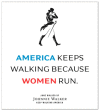'As Long as It Comes off as a Cigarette Ad, Not a Civil Rights Message': Gender, Inequality and the Commercial Determinants of Health
- PMID: 33137876
- PMCID: PMC7663661
- DOI: 10.3390/ijerph17217902
'As Long as It Comes off as a Cigarette Ad, Not a Civil Rights Message': Gender, Inequality and the Commercial Determinants of Health
Abstract
Scholarship on the commercial determinants of health (CDoH) has sought to understand the multiple ways corporate policies, practices and products affect population health. At the same time, gender is recognised as a key determinant of health and an important axis of health inequalities. To date, there has been limited attention paid to the ways in which the CDoH engage with and impact on gender inequalities and health. This review seeks to address this gap by examining evidence on the practices and strategies of two industries-tobacco and alcohol-and their interaction with gender, with a particular focus on women. We first describe the practices by which these industries engage with women in their marketing and corporate social responsibility activities, reinforcing problematic gender norms and stereotypes that harm women and girls. We then examine how tobacco and alcohol companies contribute to gender inequalities through a range of strategies intended to protect their market freedoms and privileged position in society. By reinforcing gender inequalities at multiple levels, CDoH undermine the health of women and girls and exacerbate global health inequalities.
Keywords: alcohol industry; commercial determinants of health; corporate political activity; gender; inequality; social determinants of health; tobacco industry.
Conflict of interest statement
The authors declare no conflict of interest. Both authors are independent members of The Lancet Commission on Gender and Global Health.
Figures




References
-
- Prehn E.C., Galbraith J.K. The Age of Uncertainty. J. Econ. Educ. 1977;9:61. doi: 10.2307/1182223. - DOI
-
- Maani N., Collin J., Friel S., Gilmore A.B., McCambridge J., Robertson L., Petticrew M.P. Bringing the commercial determinants of health out of the shadows: A review of how the commercial determinants are represented in conceptual frameworks. Eur. J. Public Health. 2020;30:660–664. doi: 10.1093/eurpub/ckz197. - DOI - PMC - PubMed
Publication types
MeSH terms
Grants and funding
LinkOut - more resources
Full Text Sources
Research Materials
Miscellaneous

